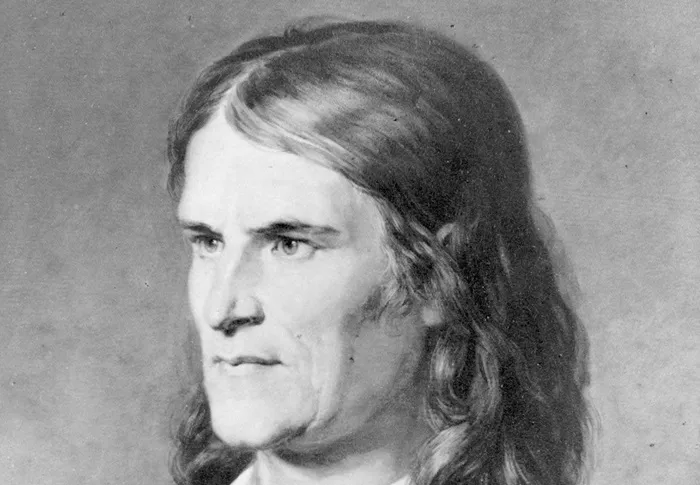Friedrich Rückert (1788-1866) is widely regarded as one of the most accomplished 19th Century German poets. His works stand as a testament to the versatility and depth of German poetry during this era. Rückert was not only a poet but also a translator and scholar, and his contributions continue to resonate in the literary world. Known for his lyrical brilliance and profound emotional depth, he played a significant role in shaping the tradition of German poetry. This article explores Rückert’s life, his poetic themes, and his enduring legacy.
Early Life and Education
Friedrich Rückert was born on May 16, 1788, in Schweinfurt, Bavaria. He grew up in a modest household, where he developed an early love for literature and learning. Rückert pursued higher education at the University of Würzburg, where he initially studied law. However, his passion for language and literature soon took precedence, leading him to immerse himself in classical and oriental studies. These early academic pursuits laid the groundwork for his later works, which often drew from diverse cultural and linguistic traditions.
Entry into German Poetry
Rückert’s entry into the literary scene was marked by the publication of his first collection of poems, Deutsche Gedichte, in 1814. This work reflected the patriotic fervor of the time, as it was written during the Napoleonic Wars. The poems celebrated German identity and resilience, earning him recognition as a significant 19th Century German poet. His ability to blend nationalistic themes with lyrical elegance set him apart from his contemporaries.
Oriental Influences
One of the defining features of Rückert’s work is his fascination with oriental literature and culture. He was deeply influenced by Persian poets such as Hafez and Saadi, and he sought to bring their richness to German poetry. His collection Die Weisheit des Brahmanen (The Wisdom of the Brahmin), published between 1836 and 1839, is a prime example of this influence. This monumental work comprises over 600 poems, offering meditations on life, love, and spirituality. Through these poems, Rückert introduced German readers to the philosophical depth and poetic beauty of Eastern traditions.
Themes in Rückert’s Poetry
Rückert’s poetry covers a wide range of themes, making him a versatile figure in German poetry. His works often delve into love, loss, nature, and spirituality. One of his most poignant collections, Kindertotenlieder (Songs on the Death of Children), was written after the tragic loss of two of his children to scarlet fever. These deeply personal poems express his grief and longing, resonating with readers through their raw emotion and universal themes.
Nature is another recurring theme in Rückert’s work. His descriptions of landscapes and seasons reflect his deep connection to the natural world. Through vivid imagery and lyrical language, he captures the beauty and transience of life, a hallmark of 19th Century German poetry.
Linguistic Brilliance and Translation
Beyond his original works, Rückert was a master translator. His proficiency in multiple languages allowed him to bring the world’s literary treasures to German audiences. He translated works from Persian, Arabic, Sanskrit, and Hebrew, among others. His translations of Rubáiyát of Omar Khayyám and parts of the Quran are celebrated for their fidelity and poetic quality. By bridging linguistic and cultural divides, Rückert enriched German poetry and expanded its horizons.
Contribution to German Romanticism
Rückert is often associated with the German Romantic movement, although his works transcend the typical boundaries of this literary era. His focus on individual emotions, the sublime, and the mystical aligns with Romantic ideals. However, his engagement with oriental themes and his philosophical depth add unique dimensions to his poetry. Unlike many of his contemporaries, who focused solely on European traditions, Rückert’s global perspective set him apart as a distinctive voice in 19th Century German poetry.
Legacy and Influence
Friedrich Rückert’s influence extends far beyond his lifetime. His works have inspired countless poets and composers. Gustav Mahler, one of the most renowned composers of the late 19th and early 20th centuries, famously set five of Rückert’s poems to music in his Rückert-Lieder. These compositions capture the emotional depth and lyrical beauty of Rückert’s verses, introducing his poetry to new audiences.
Rückert’s dedication to translation also paved the way for greater cultural exchange. By making Eastern literature accessible to German readers, he fostered a deeper appreciation for global literary traditions. His contributions as a translator remain a cornerstone of his legacy, highlighting the interconnectedness of world literature.
Challenges and Criticisms
While Rückert’s work has been widely celebrated, it has not been without criticism. Some critics argue that his engagement with oriental themes occasionally veered into idealization, reflecting the romanticized views of the East prevalent during his time. Additionally, his prolific output—comprising thousands of poems—has led some to question the consistency of his work. However, these criticisms do little to diminish his status as a towering figure in German poetry.
A Poet for All Time
Friedrich Rückert’s enduring appeal lies in his ability to transcend boundaries—be they cultural, linguistic, or temporal. His works speak to the universal human experience, making him a timeless figure in 19th Century German poetry. Whether through his heartfelt expressions of love and loss or his meditative explorations of philosophy and spirituality, Rückert continues to resonate with readers worldwide.
Conclusion
Friedrich Rückert stands as a shining example of the richness and diversity of 19th Century German poetry. His ability to blend emotional depth with intellectual rigor, coupled with his commitment to cultural exchange, makes him a unique and influential figure. As a German poet, translator, and scholar, he expanded the horizons of German poetry, leaving a legacy that endures to this day. His life and works remind us of the power of language and literature to bridge divides and illuminate the human condition.

